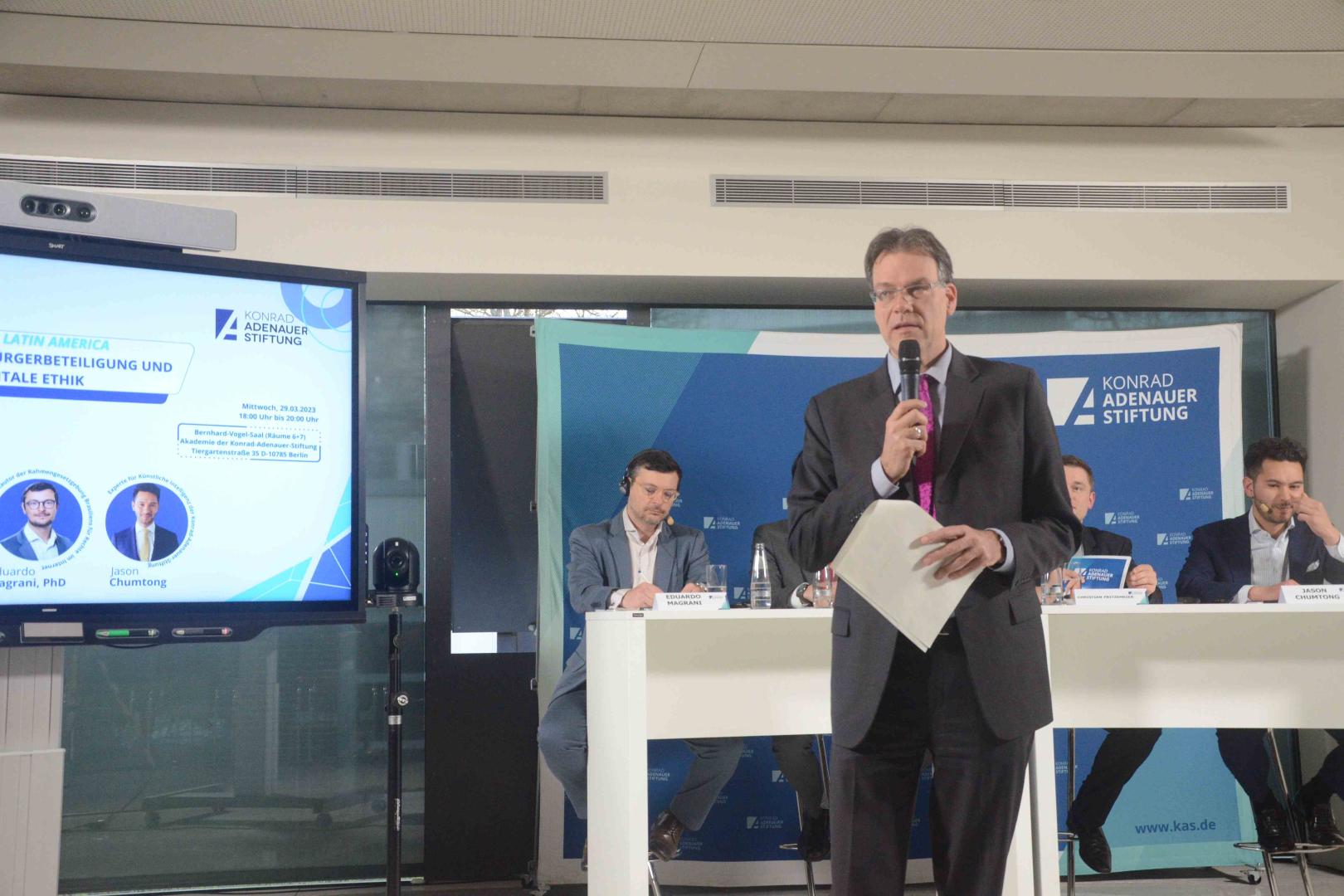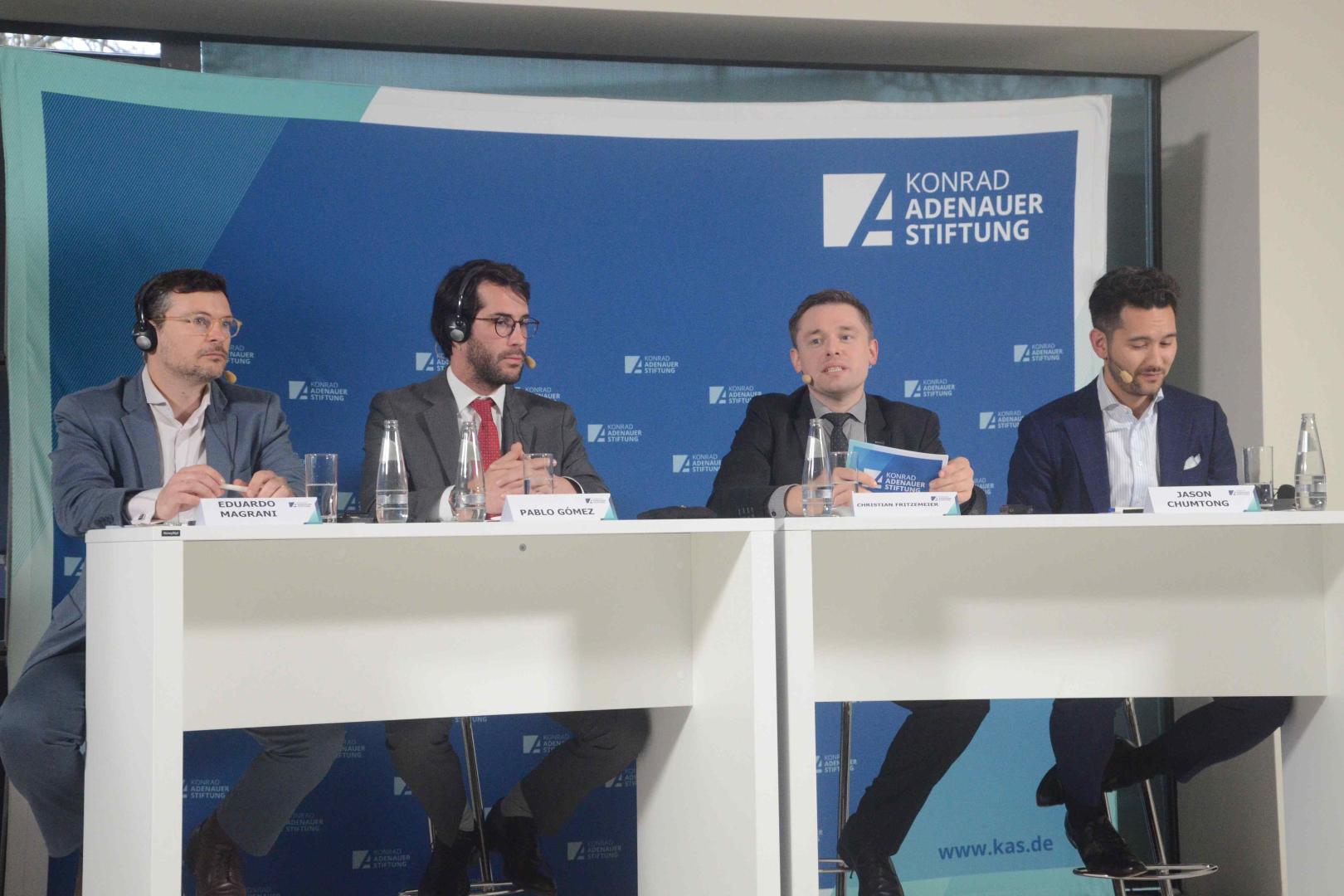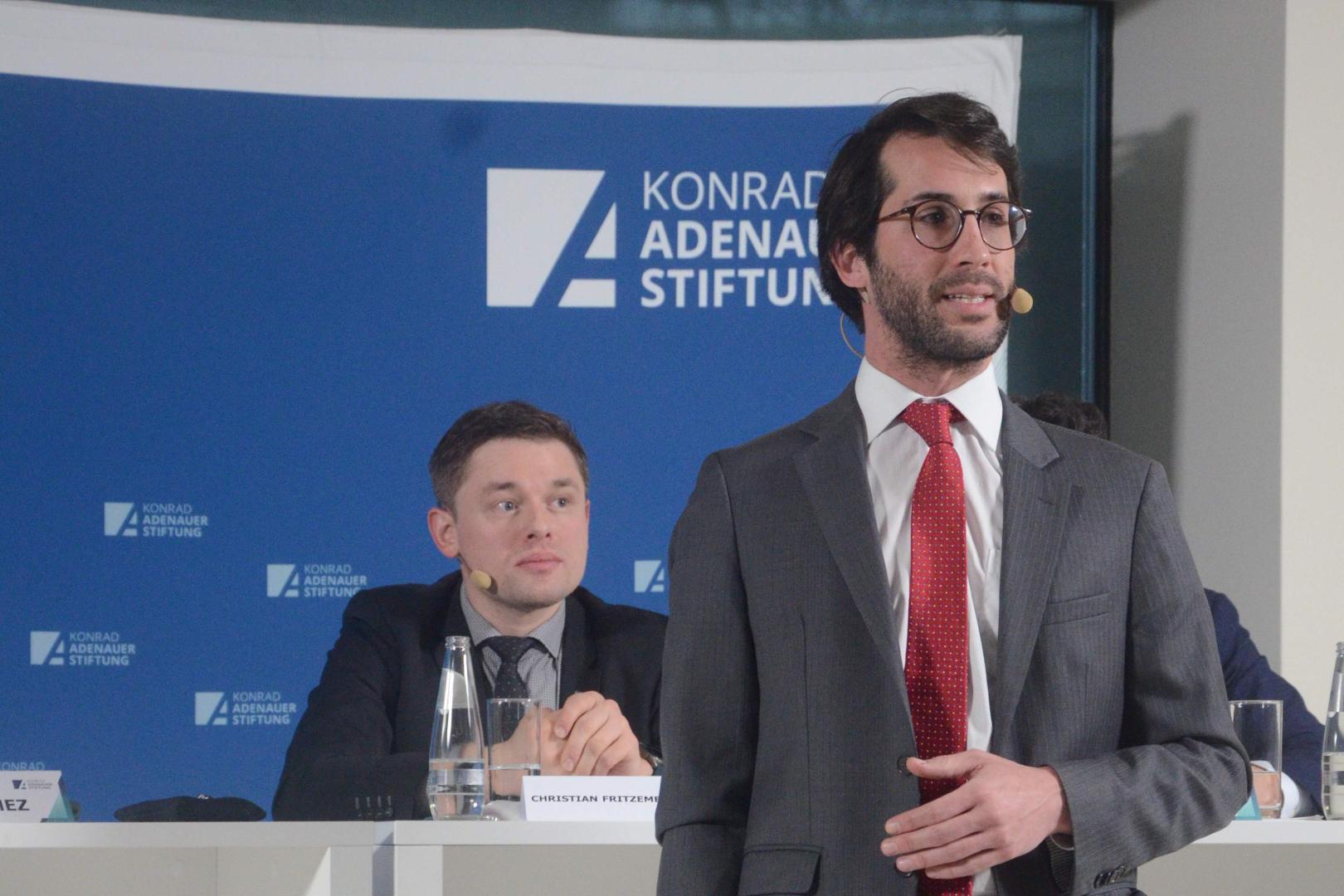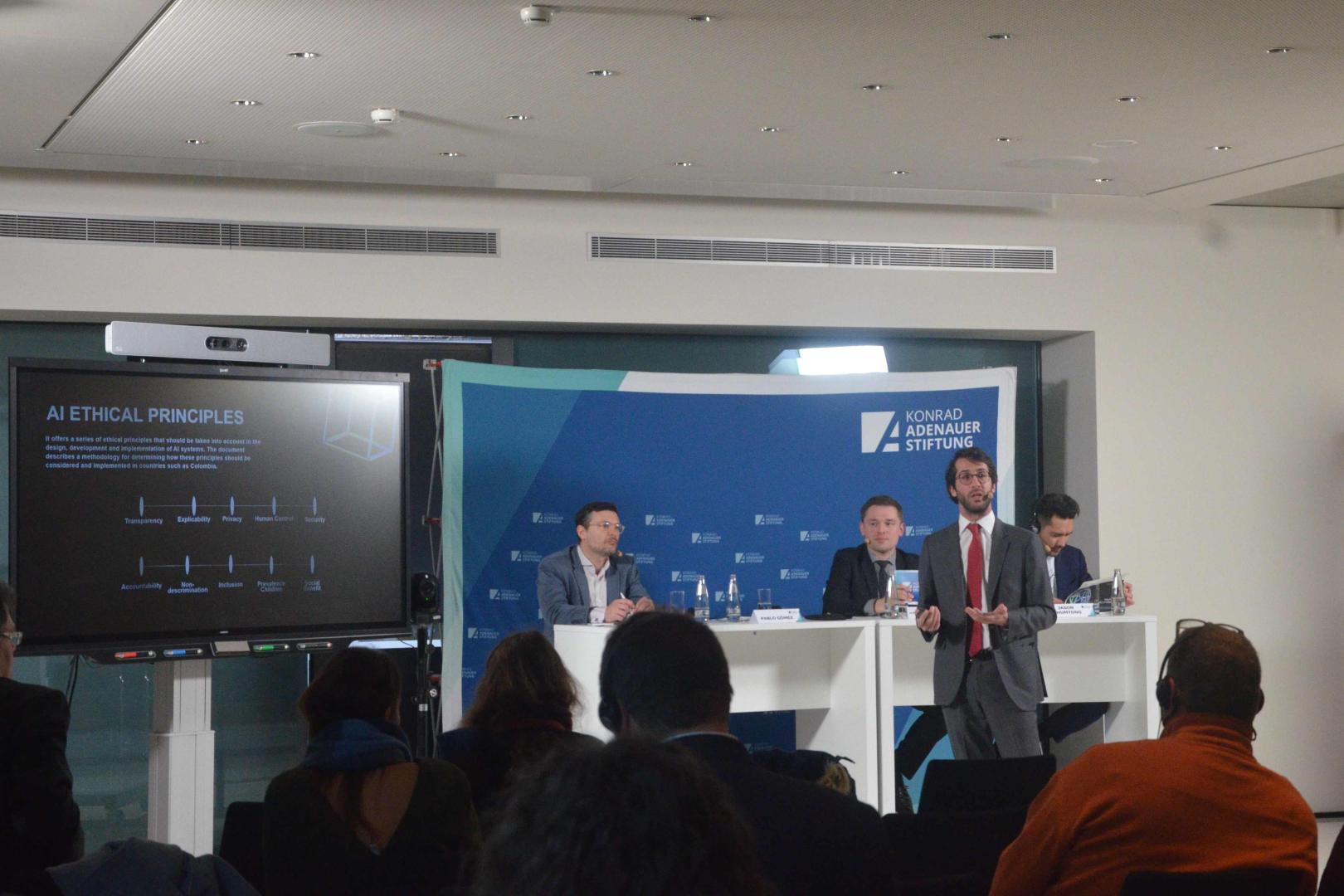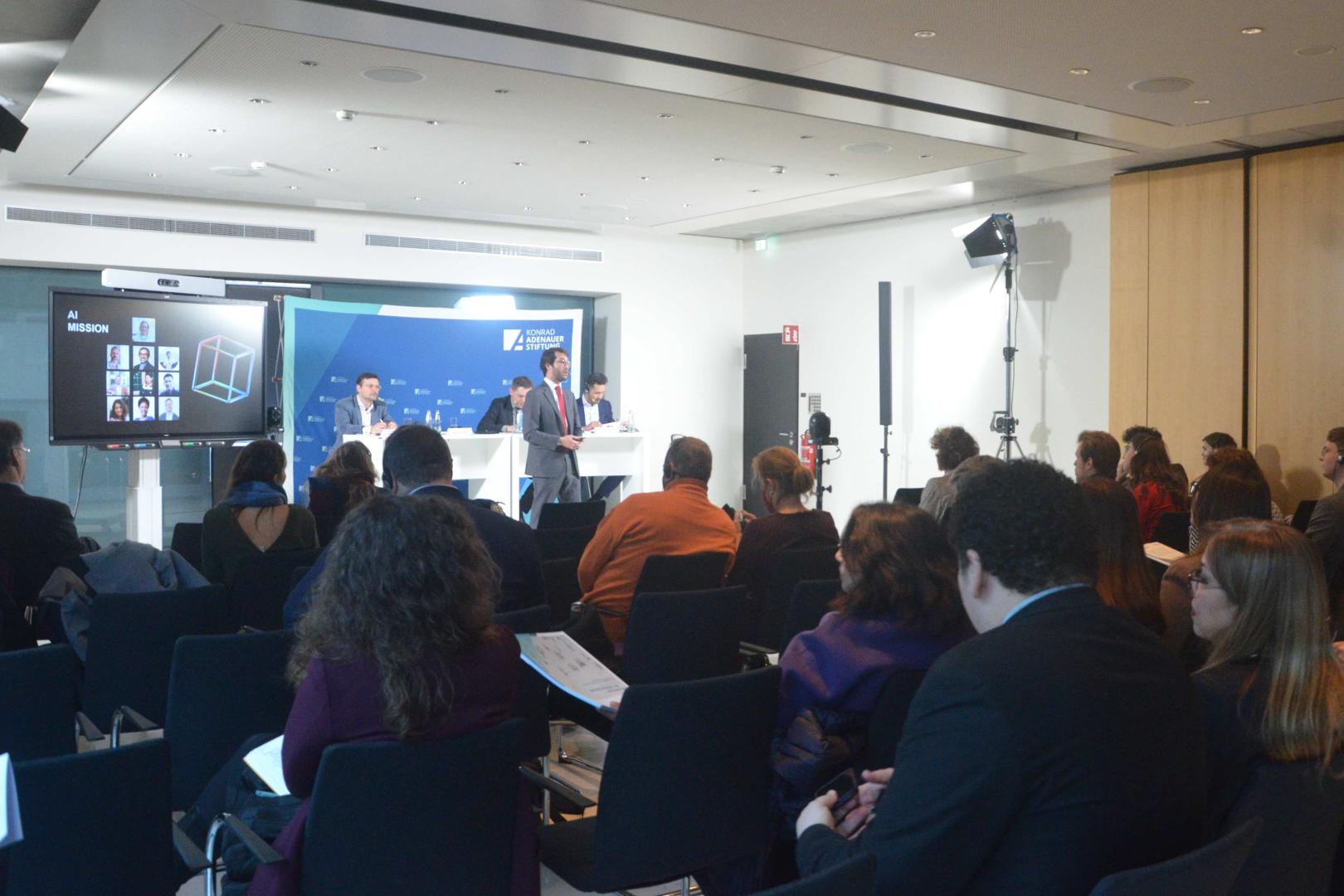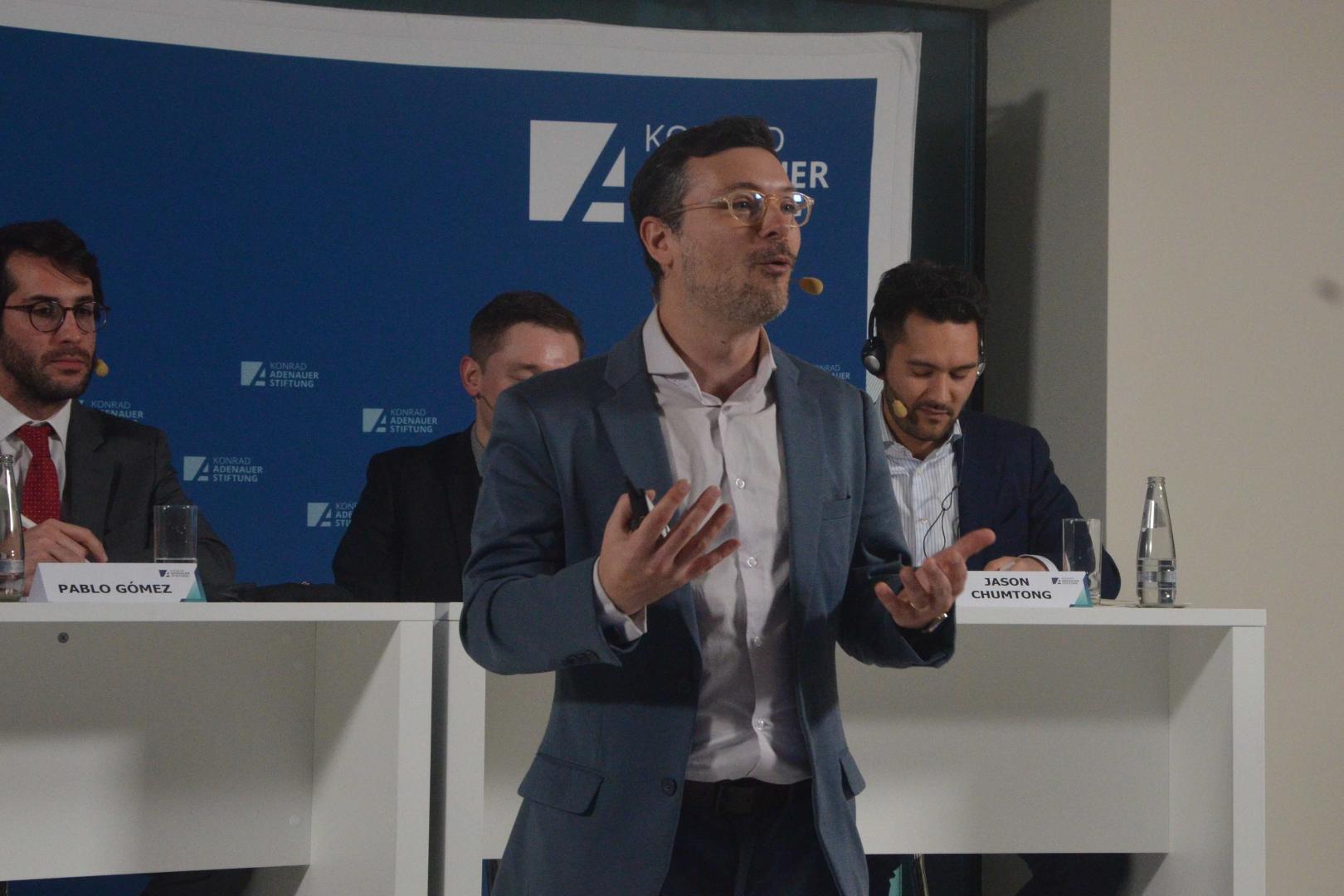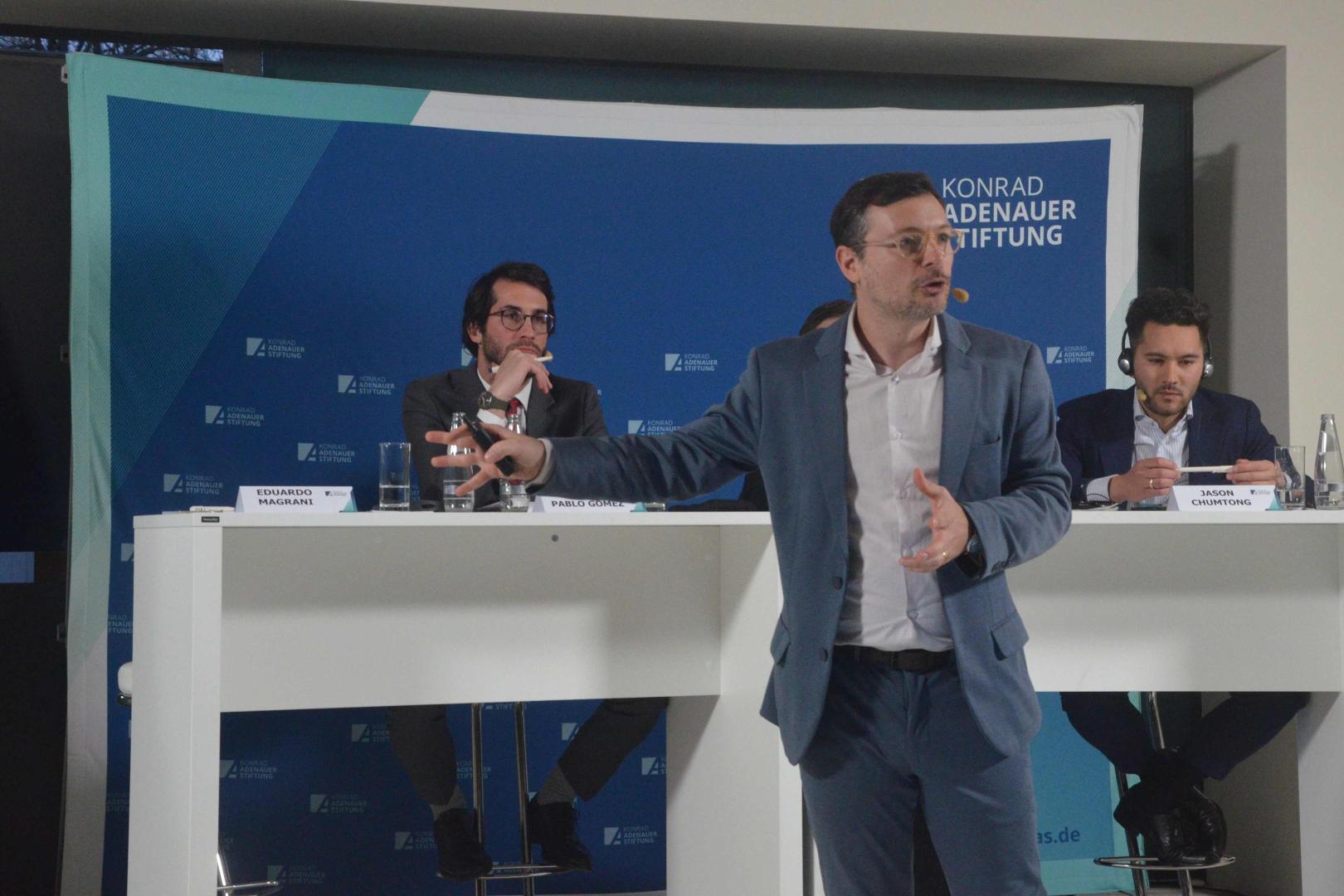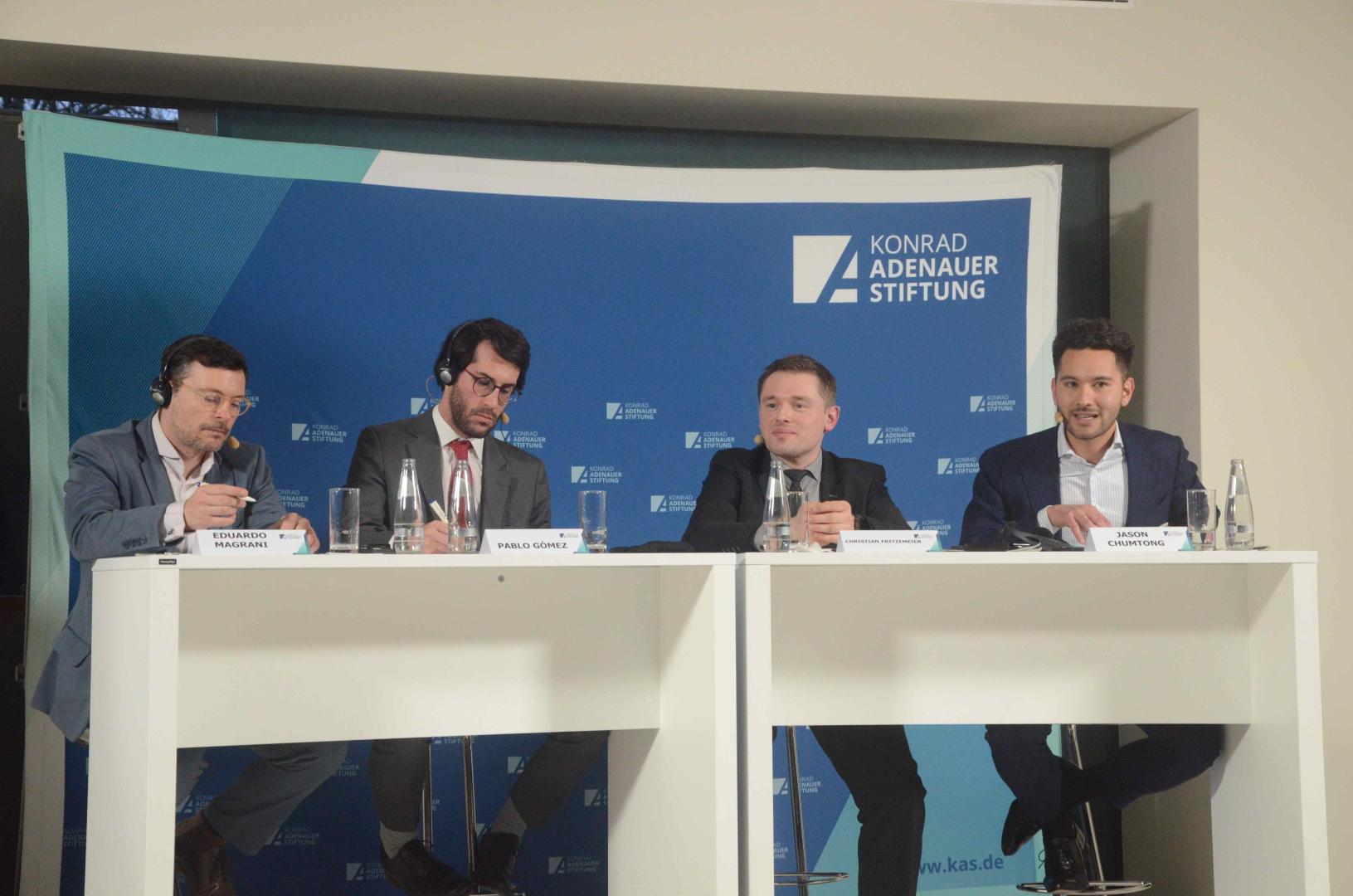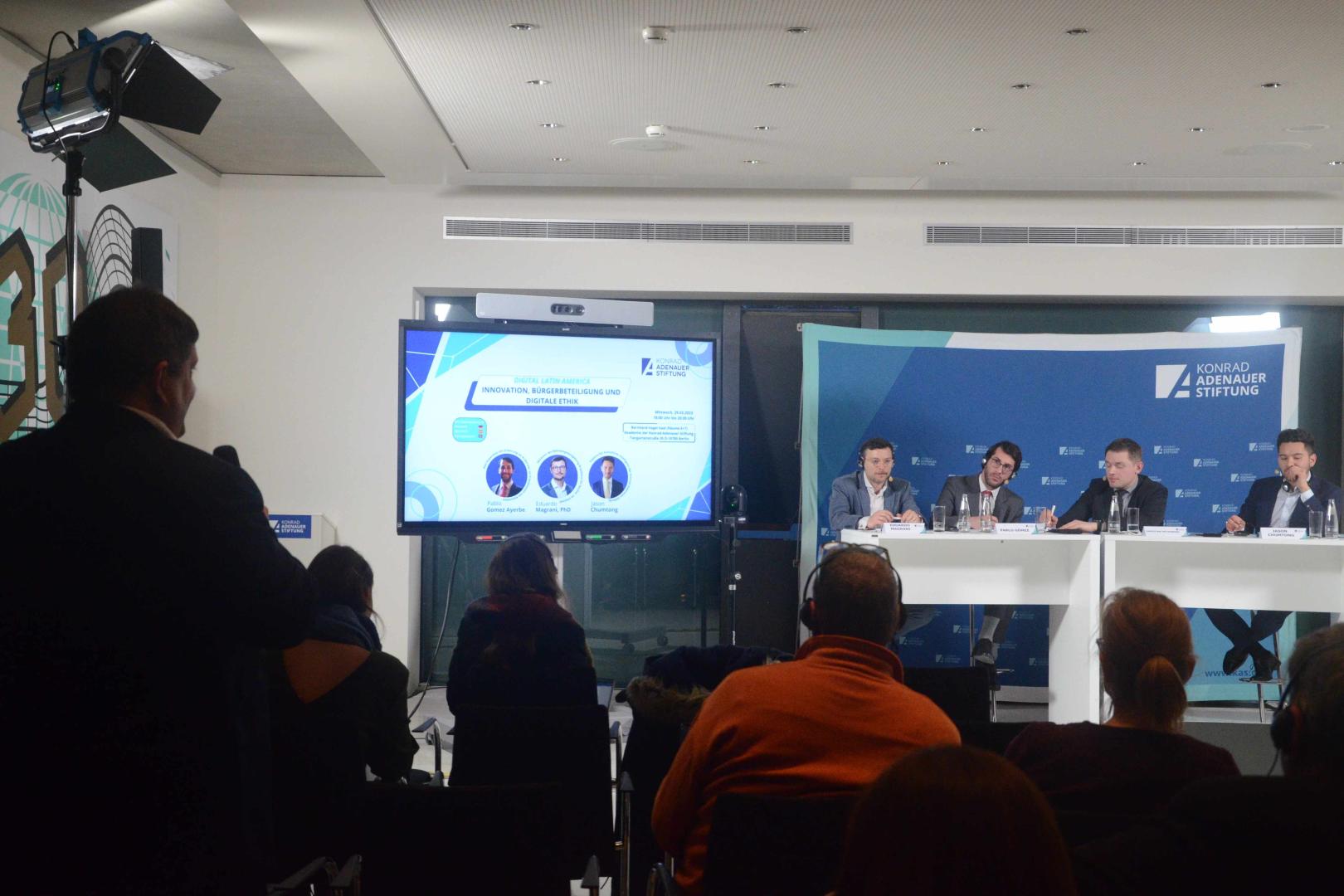The hybrid event took place as part of the BMZ's Latin America-Caribbean Week and was opened by Dr. Jan Woischnik, Head of Department for Latin America at the Konrad Adenauer Foundation. He spoke about the fact that Latin America is perceived little and almost exclusively by negative headlines in the German public and suggested to look at the exemplary developments of Latin America. The motivation for this, he said, was Colombia, for example, which already ranked third among all OECD countries in the Digital Government Index in 2019, while Germany only made it to 24th place in this ranking.
Pablo Gomez Ayerbe, a research associate at the Technical University of Munich with professional experience as an AI consultant in the Colombian Presidential Office, then presented the example of "Digital Colombia" and reported on AI and digital government in Colombia. Showing that Colombia has achieved its digital governance through a strategy of citizen participation and incorporation of the UNESCO Principles for Ethical Use of AI was the main focus.
The Brazilian perspective on data handling, digital ethics and privacy was offered by Prof. Dr. Eduardo Magrani, who also helped develop the Brazilian Internet Charter of Fundamental Rights ("Marco Civil da Internet"). According to Magrani, new technologies are spreading rapidly in Brazil, but there is only limited recognition of the risks. Another core concept of the presentation was data protection, for which laws are in place in many countries in the region, but which are not consistently observed everywhere. Also emphasized were the challenges of new technologies for democracy (e.g., through manipulation or fake news) and the danger that AI's capabilities could, in perspective, extend beyond our human-physical realm.
The question of what lessons Europe and especially Germany can learn from the examples presented was answered by Jason Chumtong, an expert on artificial intelligence at the Konrad Adenauer Foundation. He noted that in Latin America, unlike in Europe, digitization is not primarily associated with the terms "risk" and "danger," but is seen primarily as an advantage and opportunity. The KAS expert identified a lack of communication as a further problem in Germany in order to bring society along with the rapid development of technology.
In conclusion, the panel discussion with the speakers and the audience, moderated by Christian Fritzemeier, advisor for the Andean countries at the Konrad Adenauer Foundation, came to the conclusion that Latin America is very much oriented toward the U.S. and Europe in the area of digital, but that concepts such as privacy are understood differently in some cases. According to the speakers' assessment, there will probably not be a globally uniform regulatory culture in dealing with digitalization. However, an openness to innovation and a focus on the opportunities as well as a minimum level of digital education could help to make better use of the opportunities offered by digitization and artificial intelligence. Germany can take Latin America as an example, especially in this important question of mentality.
Topics
Provided by
Division European and International CooperationAbout this series
The Konrad-Adenauer-Stiftung, its educational institutions, centres and foreign offices, offer several thousand events on various subjects each year. We provide up to date and exclusive reports on selected conferences, events and symposia at www.kas.de. In addition to a summary of the contents, you can also find additional material such as pictures, speeches, videos or audio clips.





